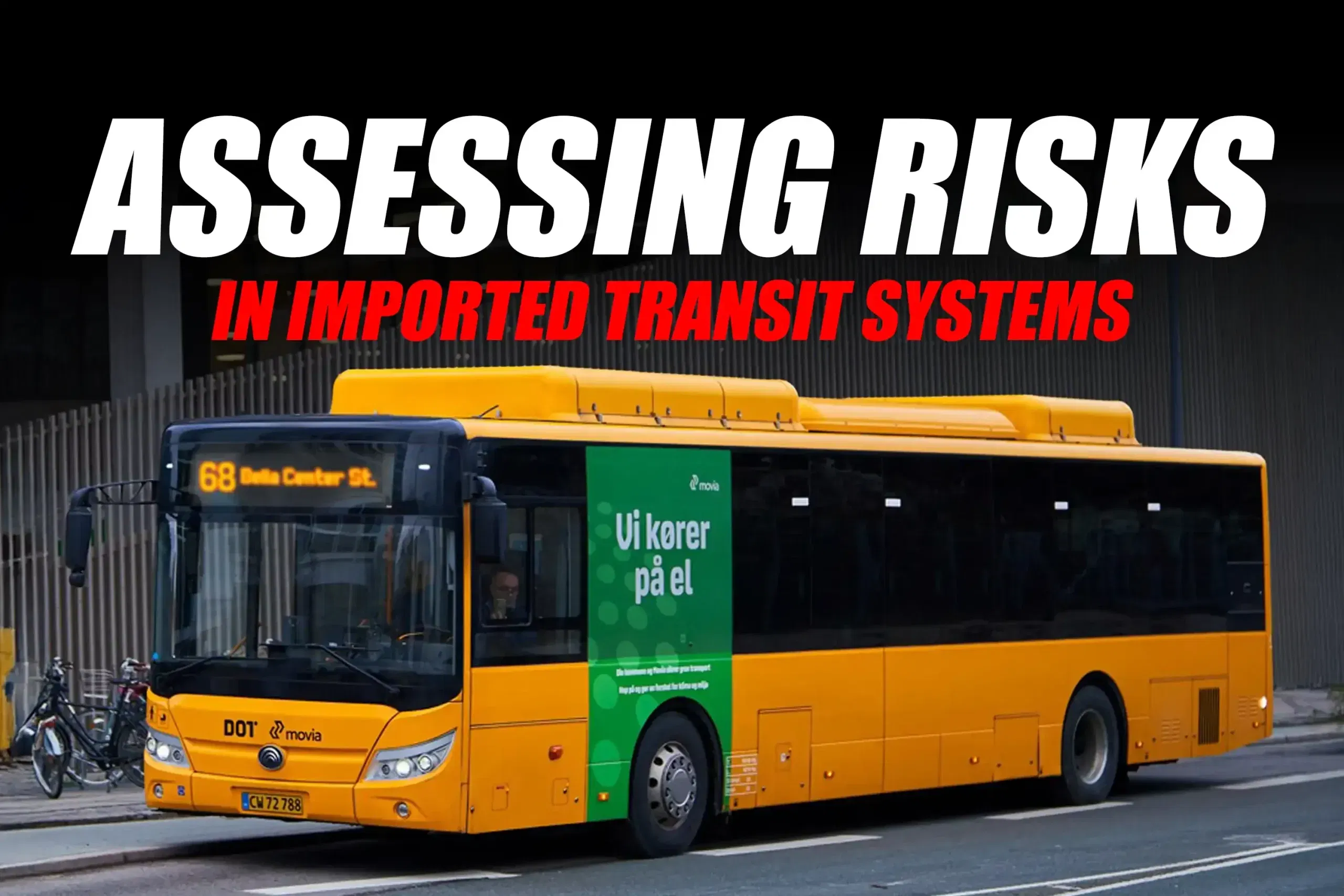Danish authorities have raised serious concerns that Chinese-made electric buses may be equipped with a remote deactivation system. This alarm comes from an investigation into vehicles manufactured by the China based firm Yutong, which happens to be a part of Denmark's public transport fleet.
In Denmark, the public transport operator Movia operates 469 Chinese-built electric buses, of which 262 are from Yutong. The security issue was shed light upon after neighbouring Norway’s operator, Ruter, discovered that Yutong buses in their fleet contained a SIM card enabling remote updates and diagnostics, which, in theory, could allow third-party or manufacturer intervention.
The Vulnerability
In the tests run by Norway, the buses were driven in an underground mine in order to shadow the external signals; an investigation found that, while the unit could not yet be taken over by a hacker, the manufacturer could access battery and power management systems via mobile-network links. As Ruter said: "in theory the bus can be stopped or rendered inoperable by the manufacturer remotely."
For Denmark, the potential threat is quite clear. While Movia confirms no bus has yet been shut down remotely, the presence of internet-connected subsystems- cameras, GPS sensors and microphones has been flagged by Denmark’s civil protection agency as exploitable vulnerabilities.
Implications for National Security
The fact that a vehicle, say in Copenhagen - or anywhere else - can be disabled remotely raises concerns more than just transport delays. The ease of halting mass-mobility assets entwines public safety, national resilience and critical-infrastructure protection. What Danish officials noted in relation to the present manufacturer being Chinese is that the larger problem is not Chinese buses, but any modern connected vehicle that has remote update capabilities carries a similar risk.
Response by the Manufacturer
Yutong said it “strictly complies with the applicable laws, regulations, and industry standards of the locations where its vehicles operate.” It added that, in the EU, vehicle data is stored in a secure Amazon Web Services data-centre in Frankfurt, encrypted, and accessible only with customer authorisation.
What's Next
Currently, Denmark is exploring ways to restrict unauthorized access and increase the monitoring of transport systems online. Movia is collaborating with national cyber agencies to review procurement practices, software-update pathways, as well as strategies for firewalling or SIM-lock removal procedures, although such actions may terminate important functions. In the meantime, transport operators across Europe will be paying close attention to this case, which raises the bar by indicating how digital connectivity in vehicles introduces new vectors of vulnerabilities.
Why This Matters
Public transport networks are the backbone of urban mobility; any compromise ripples into economic, social, and security domains.
Remote connectivity may enable maintenance savings and more comprehensive data insights for electric vehicles, but it does open up new avenues for interference.
Dependence on foreign-manufactured vehicles with embedded connectivity exposes procurement decisions to strategic risk.
The issue isn't confined to buses: as more vehicles become "connected" and receive over-the-air updates, similar vulnerabilities will mount for cars, trucks, and rail-vehicles.
Conclusion
Denmark's alarm over Chinese-made buses with a potential "kill switch" may have sounded like something out of a movie, but the underlying technical fact is straightforward: remote access systems can be misused if left uncontrolled. The country's response shows that transport agencies must now treat vehicle connectivity not only for the technical convenience it provides but also as a cybersecurity concern. This is what Movia's COO said: "This is not a Chinese bus problem. It is a problem for all types of vehicles and devices with these kinds of electronics built in."
91Trucks is the place to go for all things commercial vehicles. If you need a new or used truck for your business, check it out. We have everything you need, from detailed reviews and exact specs to the best deals that fit your business needs. Stay up to date on the latest news, analysis, and stories from the business.
Follow us on Facebook, Instagram, and LinkedIn, and subscribe to our YouTube channel to get the latest news and videos from experts!










